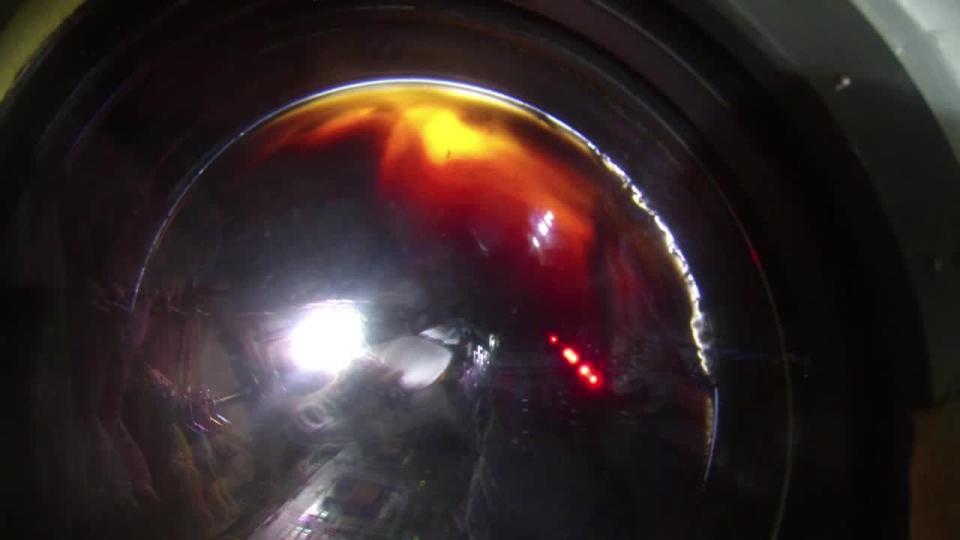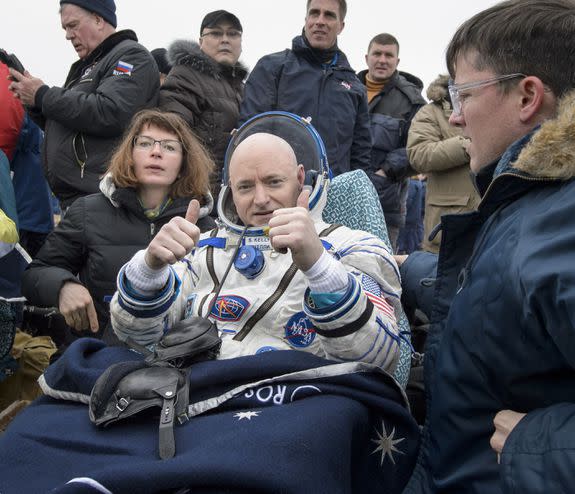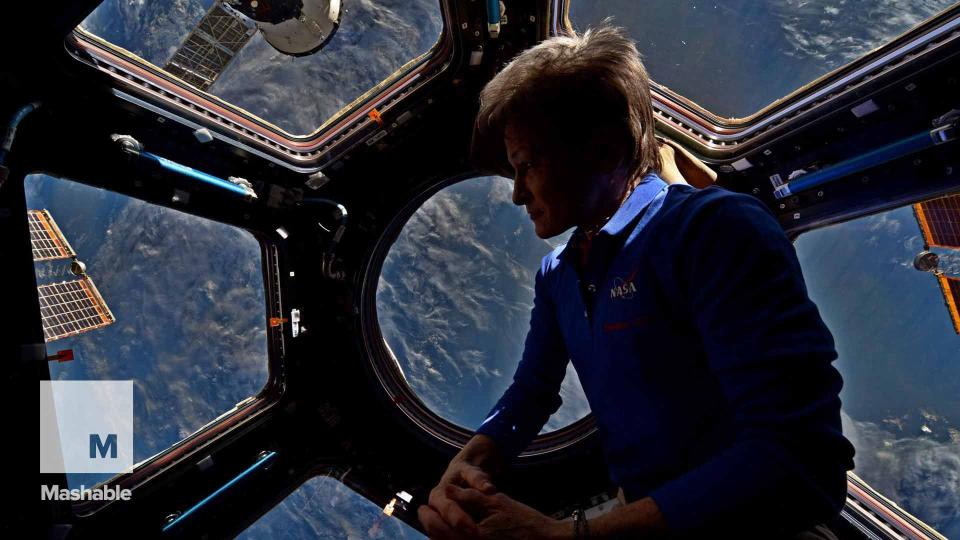Watch astronaut Scott Kelly's first moments on Earth after a year in space


When NASA astronaut Scott Kelly came back down to Earth after spending a year on the International Space Station, the first thing he did was take a deep breath of cold air.
"Crisp coldness of the air is quite refreshing. And not only fresh, but [it does] not [have a] Space Station smell to it," Kelly said in a clip from Beyond a Year in Space, a PBS documentary premiering Wednesday.
SEE ALSO: The view from astronaut Scott Kelly's new home 200 miles above Earth
"The air is great," Kelly added after landing and being pulled from his Russian-made Soyuz capsule in Kazakhstan. "I don't know why you guys are all bundled up."
Kelly spent 340 days in space alongside Russian cosmonaut Mikhail Kornienko as part of their year-long mission in space designed to see how the body changes during extended stays in microgravity.

Image: NASA/Bill Ingalls
The new documentary, the second installment of the two-part Year in Space series from PBS, shows what it was like for Kelly to return home to Texas after hundreds of days above the Earth.
Kelly's adjustment to life back on the planet wasn't exactly easy. The astronaut — who spent more consecutive time in space than any other American — reportedly had coordination issues and other health problems after returning back to gravity.
“Gravity definitely gives you a beat down when you get back,” Kelly said in the documentary. “My feet still bother me some — I didn’t walk on them for a year."
Kelly and Kornienko's year in space could be just the first of many long-duration missions to the International Space Station and beyond.
NASA is hoping to use the data gathered during this mission to learn more about what it will take to fly humans to Mars in the coming decades. Those missions will require astronauts to be in space for months at a time just to reach the red planet.
Beyond a Year in Space premieres on PBS on Wednesday at 9 p.m. ET.
WATCH: Meet the female astronaut making record-breaking space history

